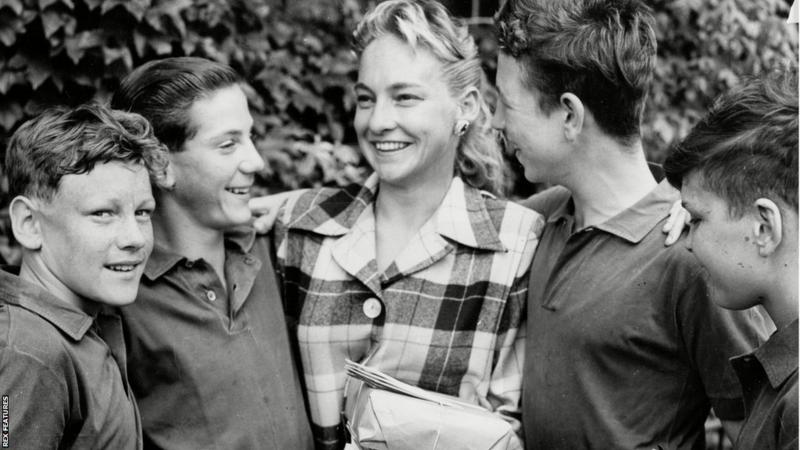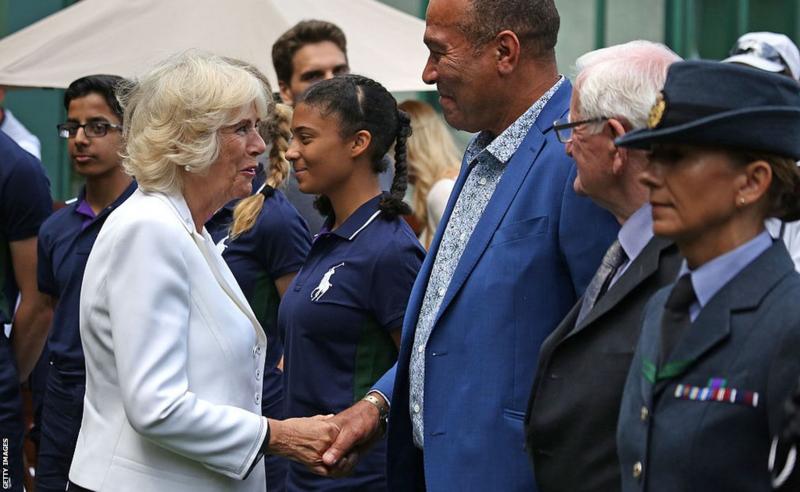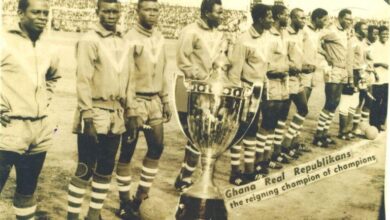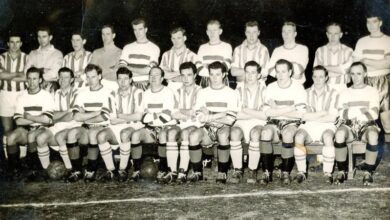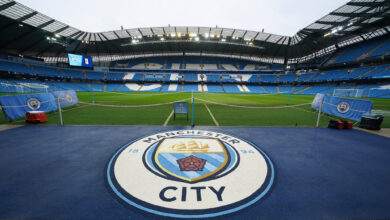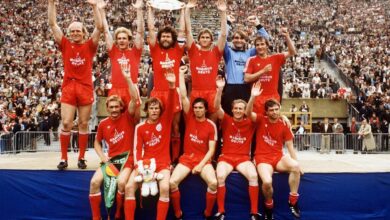The Ball Boys From Barnardo’s – Wimbledon 2023
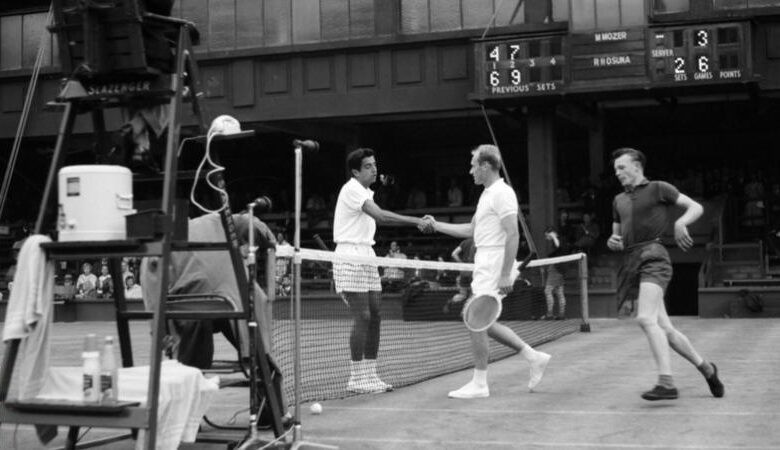
Winston Norton has none of his memorabilia from his years as a Wimbledon ball boy – sweatbands and programmes proved a valuable currency when bartering for cigarettes back at the children’s home.
The lemon squash, pilfered off the courts at the end of the day and swigged undiluted on the return coach trip, never even made it that far.
Also long gone is the dodgy amateur haircut. Hacked out by a friend at the children’s home, Norton begrudgingly paid a local barber to put it right and ensure he was smart enough for the All England Club.
But the memories have stayed and been recorded by the Museum of London, alongside those of his friend and fellow 1960s ball boy Sam Hill.
With this year’s edition of the prestigious grass-court Grand Slam just days away, the pair have been recalling what happened, each year, when a list of 60 names was posted on a wall at their Barnardo’s home.
After three gruelling months of training, a mob of boys would crowd round, straining to see if they had made the cut.
For some, it was devastation. But for others, it was elation and an experience that would broaden their horizons in ways they could never have expected.
“Your life changed,” remembers Hill.
Goldings in Hertfordshire – or, officially, William Baker Technical School – was home to 240 boys at a time. They all learned a trade – carpentry, painting and decorating, sheet metal work, shoe mending, printing and gardening – so that they could then get an apprenticeship.
Norton, who opted for printing, described it as a “melting pot” of children from all walks of life, with plenty of fights and bad language, but an overwhelmingly happy environment.
He was put into care at the age of three when his mother – who was 14 when she fell pregnant – “could not cope with the level of abuse she was getting” from her family and others because she had a mixed race baby. His father was a black American GI who went back to the United States after World War Two.
The boys were known by numbers; Norton was 217. The only chance he and his classmates had to see the outside world – beyond twice yearly trips back to see their parents – was a shopping or cinema trip to nearby Hertford for a few hours on a Saturday afternoon.
They all knew of the school’s links to Wimbledon and many were keen to be selected as ball boys, so threw themselves into the training.
“Barnardo’s had a very strict regime of keeping boys healthy and fit. They had their own swimming pool, cricket pitch and tennis courts,” Hill, 76, says.
“Obviously, the fitter you were, the more you got selected for things like Wimbledon.
“The training for Wimbledon was quite intense. You had to be at the top of your game, especially if you were a bit fussy about what court you were on.”
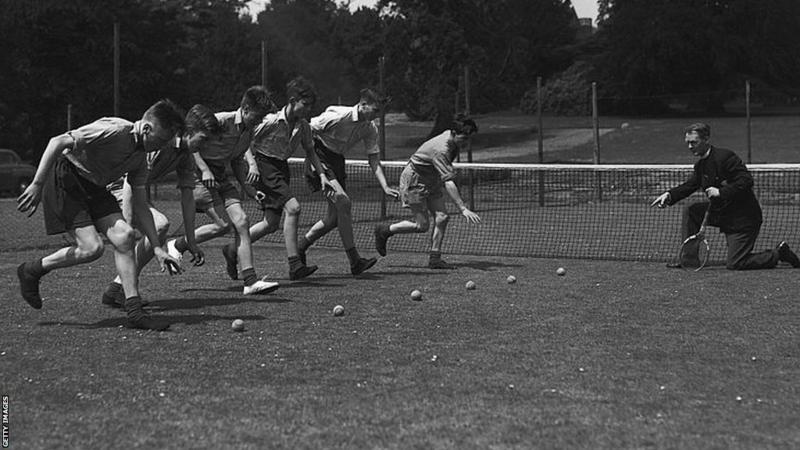
Training – led by the school vicar – started in April on the school’s courts, both grass-court and hard-court, and boys learned to pass the ball accurately and retrieve them quickly in sessions that could last two to three hours.
Finally, June came and the list went up, announcing who had been deemed fit and smart enough to head to London to mix with top tennis players, royalty and the public for a fortnight.
“Everybody was looking at the noticeboard to see if they’d been selected – and that caused a few tears for some and delight for others,” Hill tells BBC Sport. “If you got selected, you could walk with your head up, you know. ‘I’m going to be a ball boy.'”
Nowadays, Wimbledon’s ball boys and girls come from local high schools. From 1946 to 1966, though, all the ball boys came from Dr Barnardo’s children’s homes.
That added an extra dimension to the desire to be picked.
“You did actually get paid for it,” says Hill, adding that wages were up to £14 for the fortnight when he was used to 50p a week pocket money for being a prefect.
“My brothers and I got to go home straight after Wimbledon [for one of our twice-a-year visits] but we actually had money in our pockets, which was a bit of a novelty.”
Home was South Shields in County Durham, from where he and three of his brothers had been sent into care because his parents’ two-room house – with no kitchen or bathroom and a toilet in the yard – was not big enough for six children.
“We gave the money to our parents, which was a nice thing to do and to have the opportunity to do that was such a privilege,” he said.
There were chances to earn extra money – and a lot of it – if you broke the rules.
“People who were leaving used to put their used tickets in boxes and one of our jobs was to go and empty these boxes with a key and take them back as there were queues of people who were trying to get in for the last couple of hours,” says Norton, 79.
“Some of the less reputable ball boys used to make a killing – they’d sell them to the people in the queue rather than take them back. I didn’t have the nous or the courage to try doing that.”
Hill says he would get members of the public asking ‘is there any chance you can get me a tennis ball?’ – which was also against the rules.
“They’d offer huge amounts of money – you know, we could have been rich! But if you ever got caught, that was it, you would be banished from Wimbledon. I’m sure one or two obliged, but I was a prefect and house captain so I had to be leading by example.”
But money was not the only incentive for the ball boys.
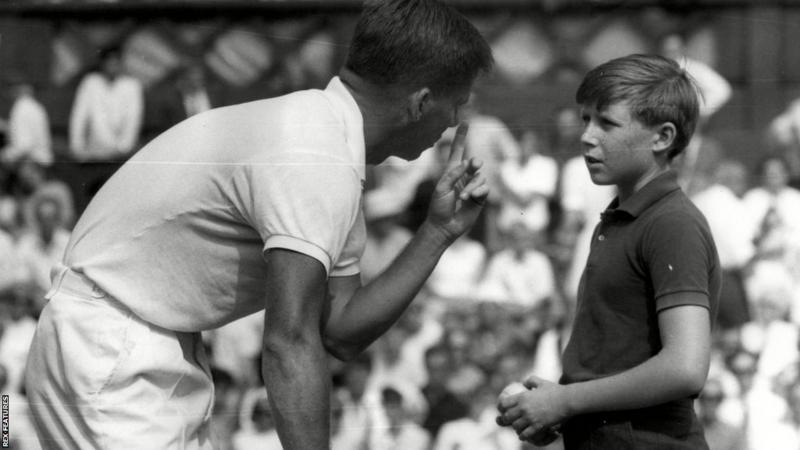
Being at Wimbledon also presented an opportunity for Hill’s family to catch a rare glimpse of him on television – an extra reason to try to get on to the main courts, Centre Court or Court One, where the cameras focused most of their attention.
Norton says it was the “best-looking and same size” boys who made it on to those courts. Hill, who was only ever on those courts, naturally does not disagree with that assessment.
“Then you get to court 15 and you’ve got two ball boys [instead of six] – one on the service end and one on the net, and we were doing the scores as well,” says Norton. “So those poor little mites had to work their socks off get hardly any limelight, while the glory boys were on Centre Court… it doesn’t seem fair, does it?”
Sometimes the players helped get the ball boys into the line of the cameras, with Hill saying that one American player had deliberately walked up to him with a broken racquet and asked him: “Do you think this is OK to play with?”
Hill says: “He knew the television cameras were following him towards me and I would actually get on television. And, of course, I’m giving it all: ‘Yeah, yeah that will be fine, that will be great, but it’s up to you whether you take a chance with a broken string.'”
Hill was delighted when his mum wrote in one of her fortnightly letters: “All the neighbours came into see, I can’t believe we saw you on the television on Centre Court by the net.”
While Norton never got to be a ball boy on Centre, he did get on Court One – and possibly even better, he played on it.
Men’s doubles players Boro Jovanovic and Nikola Pilic were waiting for their opponents to arrive and decided it was time to start warming up.
“They gave me and another ball boy a racquet and they let us have a knock-up with them, which was an unforgettable experience,” he says.
But not all players were so friendly – and Norton and his friends had a way of dealing with them.
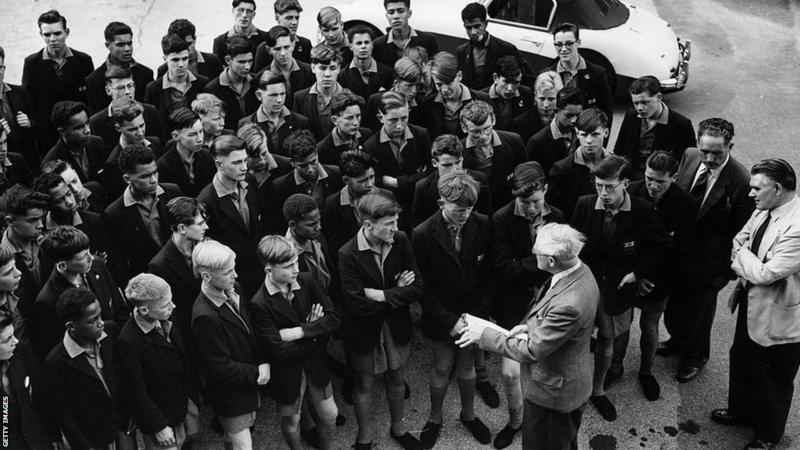
Norton described how one particular player seemed to not like receiving balls thrown to him by black or mixed-race boys.
“He avoided them, didn’t even look at them, so we read into that that he was racist,” he says.
“We’d do this silly thing where when we threw the ball to them we’d spin it so that it would come towards their hand and spin off at another direction making them look silly, payback for them being horrible to us.”
But if it was a player you liked, it would be different.
For Norton, being a ball boy when Rafael Osuna and Dennis Ralston won the men’s doubles in 1960 was his Wimbledon highlight.
“These two were my heroes at the time, so flamboyant. You want to do the best as you can as a ball boy to help them to win, I know you can’t do an awful lot but…”
At other times it was a case of just looking after yourself – in the case of Hill, when he was faced with one of British player Mike Sangster’s huge serves.
Ball boys were under strict orders not to move during play, but what do you do if the ball is coming at you at 120mph?
“It was coming right for my head. I literally ducked half an inch and heard it hit the canvas right behind my head and everybody laughed but I just thought if I hadn’t ducked then I would have probably been knocked out,” he says.
“I always blame that now for why I have got such a wide parting.”

Norton describes his Wimbledon experience – from the moment he and his friends piled out of the coach after their two-hour journey every morning – as “just like being on another planet”.
“It was a totally different world, a different class, different clothes – I mean we had our school uniform and that was it,” he says.
“It showed me there was another world out there apart from Goldings. When I was at Goldings, I depended on charity – seeing all these people comfortably off with their nice clothes and eating their strawberries – I saw there was more to it than Goldings.
“It taught me to try to be humble, but to look people in the eyes and talk to them level, not shy and embarrassed and self-conscious as I used to be.”
When Norton left Goldings, he started working as a printer at a local paper in Hertfordshire, before deciding he wanted more. He began running youth clubs and eventually working in and then leading a care team in a school for boys with emotional and behavioural difficulties.
Hill, who trained as a carpenter and joiner at Goldings before eventually running five of his own businesses, also says working at Wimbledon taught him some valuable social skills.
“When you got to meet people for the first time – dignitaries, famous people – it was how you were taught to react to these people that you took away with you,” he says. “You did not disrespect, you did not steal.”
Both men enjoy watching Wimbledon these days – Hill even has two tennis balls on his sideboard at home that were used in Andy Murray’s 2016 Wimbledon final victory that he was invited to attend as a guest of the All England Club.
“It’s great to watch how the game has changed and how much more powerful these players are,” Hill says.
Would he fancy being a ball boy in the face of that?
“No, I can’t even run from here to the doorway!”
